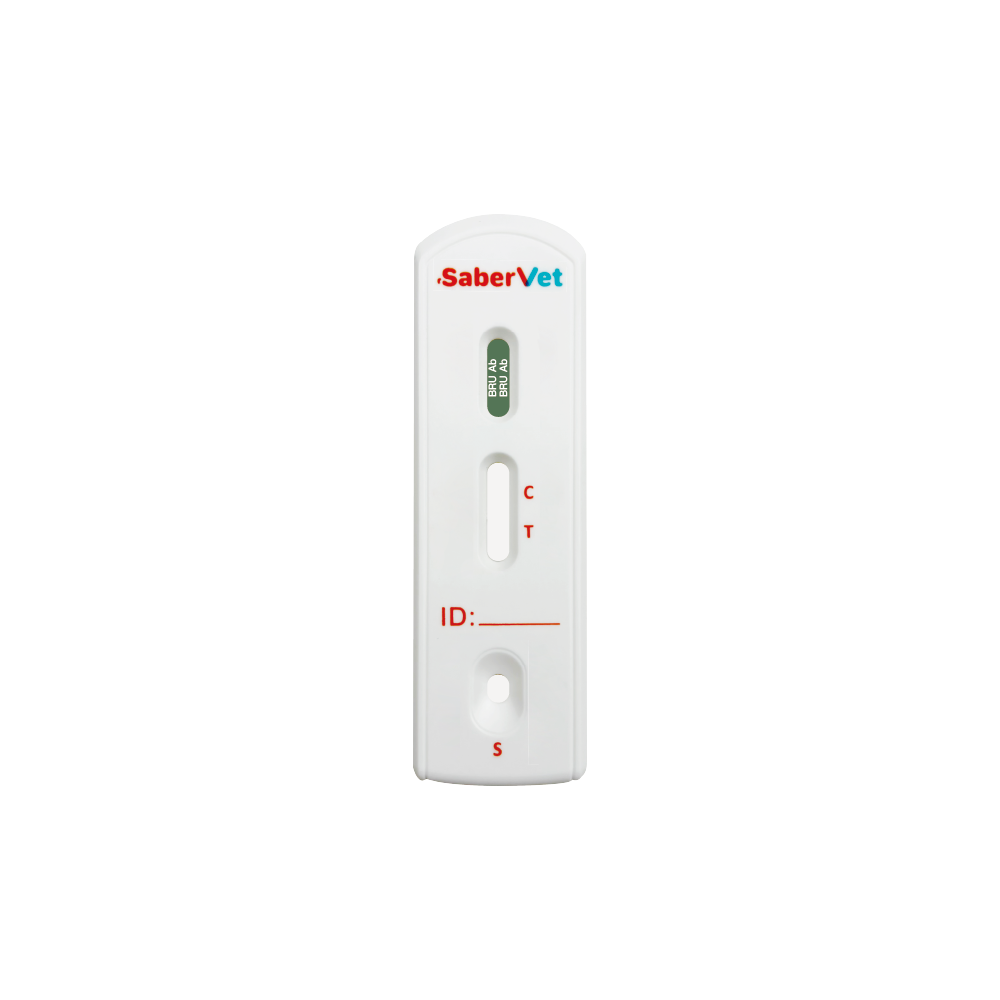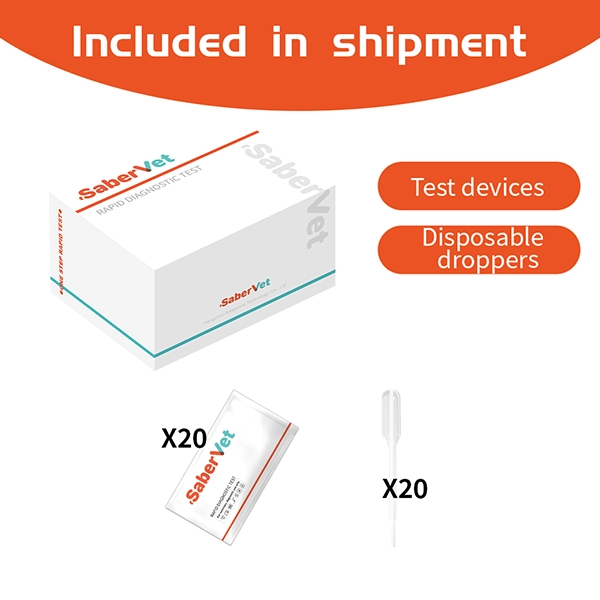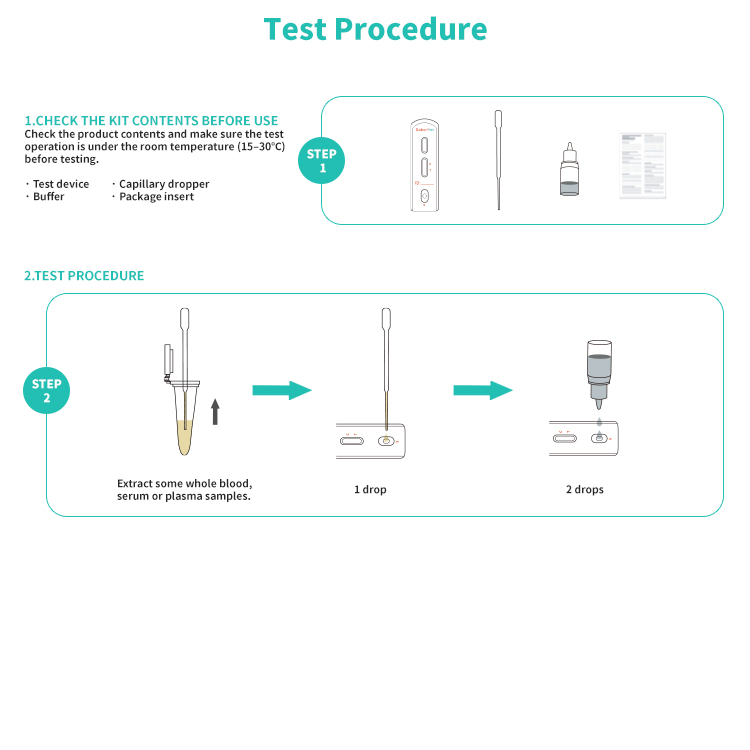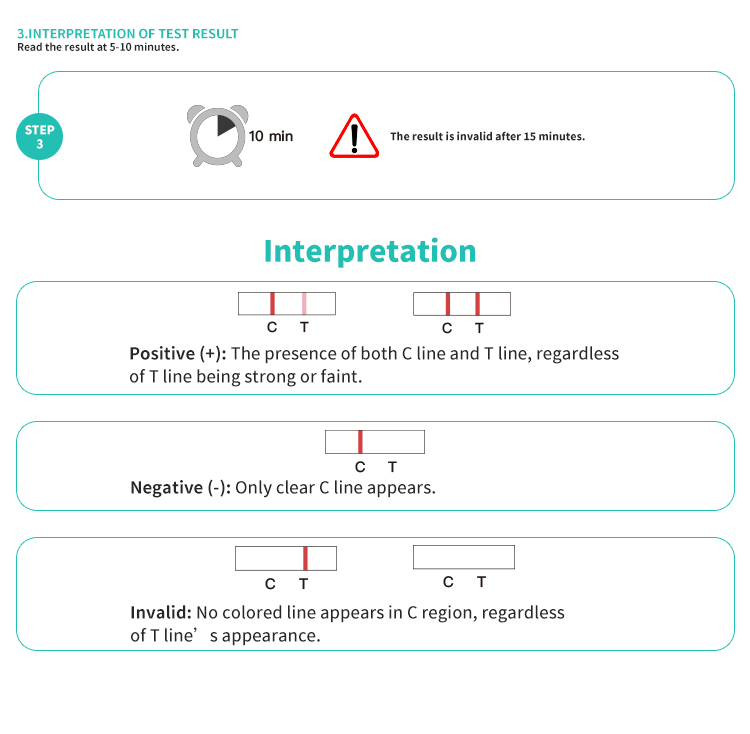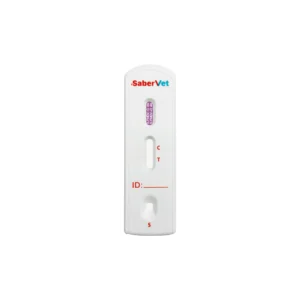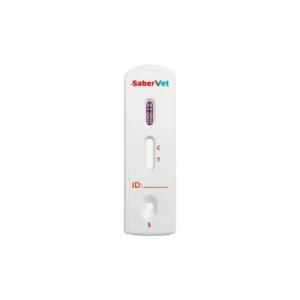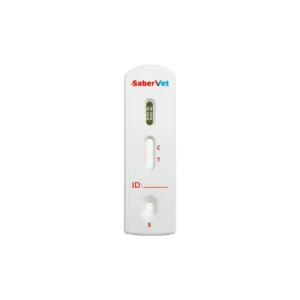Description
Intended Use
Brucella Antibody Rapid Test is a lateral flow immunoassay intended for the qualitative detection of Brucella Antibody (BRU Ab) in serum/plasma sample.
Contents
| Component | 10T/Box |
| Test device | 10 piece |
| Dropper | 10 piece |
| Buffer | 10 piece |
Specifications
| Product name | Bovine Brucella Antibody Rapid Test |
| Brand Name | Sabervet |
| Model Number | 1089191820 |
| Specimen | Whole Blood/Serum/Plasma |
| Application | Vet Health Diagnosis |
| Sensitivity | 99.80% |
| Specificity | 97.69% |
| Certificate | GMP & ISO9001 & CE |
| Assay Time | 10 Minutes |
| OEM&ODM | Available |
| Shelf Life | 3 Years |
Operation
Results
Pathological Introduction
Canine brucellosis is a zoonotic disease caused by Brucella in both humans and animals. It mainly causes canine brucellosis and reproductive disorders in dogs, and can also lead to intervertebral discitis, osteomyelitis, meningoencephalitis, and uveitis.
Adult dogs infected with Brucella rarely show severe clinical symptoms, or may only exhibit lymphadenitis. They may also show systemic symptoms after a latent period of 2 weeks to as long as 6 months. Pregnant bitches often miscarry between 40 to 60 days of pregnancy. Within the 1 to 6 weeks before miscarriage, infected dogs generally do not have high body temperature, but the vulva and vaginal mucosa are swollen, and there may be light brown or greyish-green discharge from the vagina.
Miscarried fetuses often exhibit partial tissue autolysis, subcutaneous edema, congestion, and subcutaneous hemorrhage in the abdominal region. In early pregnancy (10 to 20 days after mating), embryos may die and be absorbed by the mother's body. Miscarried bitches may develop uteritis and subsequent infertility after repeated mating. Male dogs may develop orchitis, epididymitis, scrotal swelling, scrotal dermatitis, and sperm abnormalities. In addition to reproductive system symptoms, infected dogs may also develop arthritis, tenosynovitis, and occasionally limping. Some infected dogs may also develop uveitis.
Detection Methods
When pregnant bitches have miscarriages, bitches are infertile, or male dogs have orchitis or epididymitis, this disease should be suspected. A comprehensive diagnosis can be made on the basis of epidemiology, clinical symptoms, bacteriological examinations, and serological reactions.
When there are large numbers of miscarriages in pregnant bitches, and repeated infertility in bitches, or when male dogs get orchitis, epididymitis, scrotal swelling, and reduced breeding ability in a dog population, this disease should be suspected. Sometimes, a large number of swollen abnormal cells can be seen in semen smears of those male dogs.
After dogs are infected with Brucella, bacteremia can persist for months to years. Therefore, taking blood for bacterial culture is the best method for diagnosis. Aseptically collected blood samples are inoculated into nutrient broth and cultured under aerobic conditions for 3 to 5 days. Then these samples are subcultured onto solid culture media for identification.
Brucella in dogs grows relatively slowly, taking 48 to 96 hours to form visible colonies. Alternatively, samples can be taken from aborted fetal membranes, fetal stomach contents, or diseased liver, spleen, and lymph node tissues. They are made into smears, stained (using Macchiavello or modified Ziehl-Neelsen methods) and examined under a microscope. Red-colored bacteria can be seen under the microscope. In this way, the disease is diagnosed.
Conventional testing methods require specific laboratory environments and trained personnel. But the ITGEN Canine Brucella Antibody Rapid Test Strip is easy to use, unaffected by environmental factors or personnel, and is suitable for initial screening of antibodies against canine brucellosis.
Treatment/Prevention Plan
The following comprehensive measures should be taken for prevention:
Take regular serological tests for canine populations (especially breeding populations), with blood culture if necessary. It is best to perform these tests twice a year, and any positive dogs should be strictly isolated. Only negative dogs are kept for breeding purposes.
Encourage in-house breeding as much as possible. Newly acquired dogs should be isolated and observed for one month, and only after quarantine and confirmation of good health should they be introduced into the population.
Male breeding dogs should undergo quarantine and confirmation of good health before participating in breeding.
Dog kennels and exercise areas should be regularly disinfected. The areas, pens or other equipment contaminated by miscarriage materials should be thoroughly disinfected.
Economically non-valuable diseased dogs can be euthanized. Diseased dogs with value can be isolated and treated, but strict veterinary hygiene measures must be implemented.
